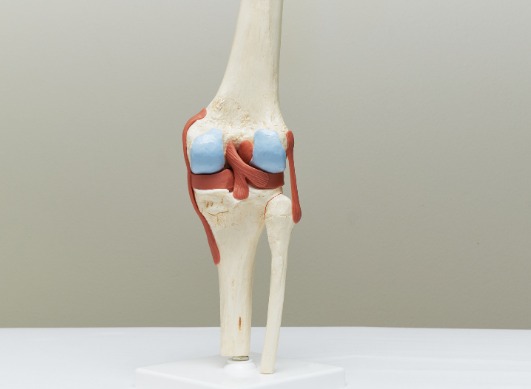How do osteoarthritis patients perceive their quality of life?
Published Apr 26, 2022 • By Candice Salomé
Osteoarthritis is a chronic condition that affects nearly 500 million people worldwide. It is the most common musculoskeletal disorder. Patients with osteoarthritis experience significant pain in the affected joint. This disease can easily complicate patients’ daily lives.
The Osteoarthritis Foundation International (OAFI) has conducted a broad survey involving 208 people in Spain to ask them about the impact of osteoarthritis on their daily lives and quality of life.
Let’s take a look at the key results of the CAVIPA survey, conducted by the OAFI.
What is the impact of osteoarthritis on respondents'’ daily lives? How long did it take for them to get a diagnosis? What measures have they had to put in place in the day-to-day? How is their relationship with their doctors?
We answer these questions and more below!

The Osteoarthritis Foundation International (OAFI) is the world's first and only foundation dedicated exclusively to patients affected by osteoarthritis. Their goal is to fight the disease, the prevalence of which is constantly increasing. The number of patients affected by osteoarthritis has increased by 48% between 1990 and 2019, making it the 15th most prevalent cause of death in the world. The OAFI works every day to raise awareness, prevent, treat, and research osteoarthritis.
Indeed, in a society where life expectancy is increasing, osteoarthritis must be considered a health priority. Patients must be heard so that their needs and expectations are also heard.
In this context, OAFI designed and carried out the first Spanish study on the quality of life of osteoarthritis patients, called CAVIPA (from the Spanish ‘Calidad de Vida de los Pacientes con Artrosis’).
How was the study conducted?
The aim of the OAFI study was to determine the perceived quality of life of patients with osteoarthritis of the knee or hip, focusing on associated factors such as knowledge of the disease, satisfaction with their care and treatment, their symptoms, and the limitation that osteoarthritis places on daily activities.
This cross-sectional, observational study collected data through a telephone survey in Spain.
The telephone interviews took place between December 2020 and May 2021. The majority of respondents were patients and members of the OAFI database, others were patients of doctors who collaborate with OAFI.
What are the key results of the study?
Respondent profile
The majority of the patients surveyed were diagnosed after just over 3 years.
94.33% of the patients who participated in the study reported having one or more comorbidities. The most common comorbidities were depression and anxiety (37.98%), cardiovascular disease (23.56%), followed by fibromyalgia and chronic pain (21.63%).
Osteoarthritis is more prevalent in women than in men and is more common in the elderly.
Impact of osteoarthritis on social and professional life
Osteoarthritis affects the perceived quality of life of half of respondents. This mainly highlights the profound impact that OA can have on patients’ social life.
Pain is the first word that comes to respondents' minds when they think of their osteoarthritis. They have the impression that their pain is not understood, even by those around them (friends and family).
Having co-morbidities and having osteoarthritis in more than one joint is associated with poorer perceived quality of life and health. Indeed, mental health problems have a profound influence on patients' quality of life.
Reduced joint mobility leads to a poorer perception of quality of life. Patients have to avoid certain daily activities because of osteoarthritis.
Moreover, 59.7% of the patients surveyed reported a real limitation in terms of mobility and 33% had already had to ask for sick leave because of their osteoarthritis.
Treatment and management of osteoarthritis
Only half of respondents have received dietary recommendations from their doctors, and of these, only 20% have received professional support in implementing these recommendations.
Nevertheless, 78.77% indicated that they have implemented one or more behavioural changes to improve their health.
However, 31.37% of these patients reported that their osteoarthritis remained unchanged even after the implementation of certain dietary measures. This could be linked to the lack of support from health professionals managing their treatment.
As far as pharmacological treatments are concerned, only half of respondents are satisfied and think that these medications improve their quality of life and mobility. 1/5 of the respondents think that their medication alone can quickly and completely relieve their pain.
Relationship with doctors
Despite this lack of satisfaction with their care and treatment, patients are slow to communicate this to their doctors.
Many feel that their doctors will not listen to them or that they have no other treatment options.
Conclusion
The CAPIVA study results highlight the importance of the impact of OA on patients' lives, mainly due to the associated functional limitations, comorbidities, and delayed diagnosis.
This survey was conducted to provide a baseline for better management for patients with osteoarthritis, thus ensuring a better quality of life in the future.
The OAFI developed this survey to give patients a voice. This in-depth investigation of the underlying issues behind patients' needs can contribute to the development of personalised strategies for the management and treatment of the disease.
And what about you? Have you also hesitated to speak with your doctor about issues
with your osteoarthritis care?
Sources :
CAPIVA study conducted by OAFI: Survey on the perception of the quality of life of OA patients in Spain

 Facebook
Facebook Twitter
Twitter


